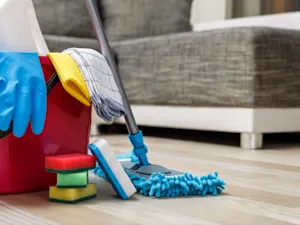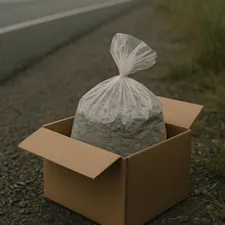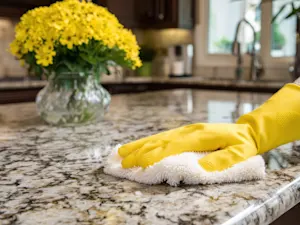
Never Do This When Cleaning Your Home — 12 Common Mistakes to Avoid
Keeping your home clean can feel like a never-ending task. But did you know that many of the cleaning habits you've developed could actually be making things worse? Here are the 12 biggest cleaning mistakes people commonly make — and how to avoid them.
1. Using the Wrong Cleaning Products

One of the most common mistakes people make is using the wrong product for the task at hand. Whether it's applying bleach on delicate surfaces or using furniture polish on electronics, using improper cleaners can cause long-term damage.
2. Not Cleaning Your Cleaning Tools

It may sound ironic, but many people forget to clean the tools they use to clean their homes. Sponges, vacuums, cleaning appliances, and mops collect bacteria and dirt over time, which can be spread back onto surfaces if not properly maintained. To solve this, be sure to follow the cleaning instructions for your appliances, regularly wash filters, and frequently replace mop heads and sponges.
3. Spraying Cleaner Directly on Surfaces

Spraying cleaning products directly on surfaces, like glass or wood, can lead to buildup and streaks. A better method is to spray the product onto a cloth or sponge before wiping down the surface.
4. Forgetting to Dust Before Vacuuming

Vacuuming before dusting is a major no-no. Dusting after you've vacuumed allows dust particles to fall onto clean floors, requiring a second pass with the vacuum. Always dust before you vacuum to avoid redoing your work. Additionally, if you usually start by cleaning the floors, think about the dust that falls from higher surfaces like walls, windowsills, and ceiling fans. It's better to clean from the top of the room down, saving the floors and carpets for last.
5. Using Dish Soap on Your Cutting Boards

For wooden cutting boards, simply using soap and warm water may not be enough, especially after handling raw meat or poultry. To avoid cross-contamination during future meal prep, soak the board in a bleach solution after use. Additionally, putting wooden cutting boards in the dishwasher can create prolonged exposure to heat and moisture, which can warp and crack wooden cutting boards – same goes for wooden utensils; it's best to wash by hand and let air-day. Always check the manufacturer's suggested method for cleaning your exact material of cutting board.
6. Using Too Much Cleaner

Overusing cleaning products can lead to sticky residue that attracts even more dirt. Whether it's laundry detergent or floor cleaner, always use the recommended amount for optimal results.
7. Ignoring High-Touch Surfaces

Doorknobs, light switches, and remote controls are some of the most germ-laden items in your home, yet they're often overlooked. These high-touch areas should be cleaned and disinfected regularly.
8. Rubbing Stains Instead of Blotting

When faced with a spill, it's tempting to rub the stain out. However, rubbing only pushes the stain deeper into the fabric. Blotting with a clean cloth absorbs more of the liquid and prevents spreading.
9. Clean Before You Disinfect

Disinfecting wipes won't be effective on dirty surfaces. To properly sanitize, you need to first clean the area with soap and water to remove any dirt. Only then should you use a disinfecting wipe to ensure the surface is fully sanitized.
10. Cleaning Windows on a Sunny Day

Cleaning windows when the sun is shining may seem like a good idea, but the heat causes the cleaner to dry too quickly, leading to streaks. Cloudy days are actually better for streak-free window cleaning.
11. Neglecting to Clean the Toilet Brush

Toilet brushes don't clean themselves, and even ventilated holders can harbor germs if not cared for properly. After scrubbing the toilet, rinse the brush and let it air dry completely before placing it back in the holder. Once a month, soak the brush in white vinegar to eliminate bacteria, and ensure it dries thoroughly before storing.
12. Reusing Cleaning Cloths

When cleaning, it's important to have several clean rags available and avoid using the same one on multiple surfaces. Using a new cloth for each area helps prevent the spread of bacteria and dirt, keeping germs contained.
By avoiding these common cleaning mistakes, you can ensure your home stays cleaner, more hygienic, and free from the spread of germs. Small changes in your routine can make a big difference in maintaining a healthier living space.
References: 25 Common Mistakes You Make While Cleaning Your House | 25 of the Biggest (And Grossest) Cleaning Mistakes You're Making
























